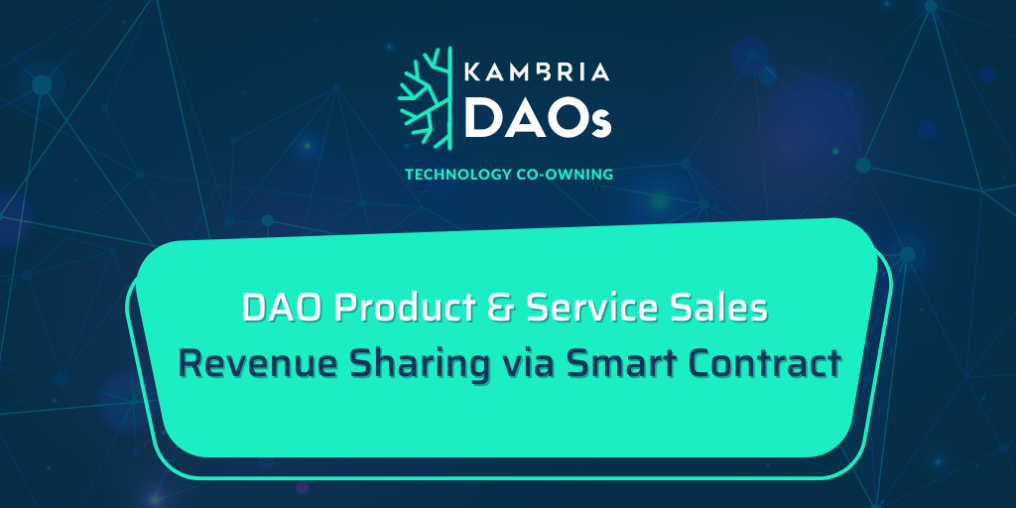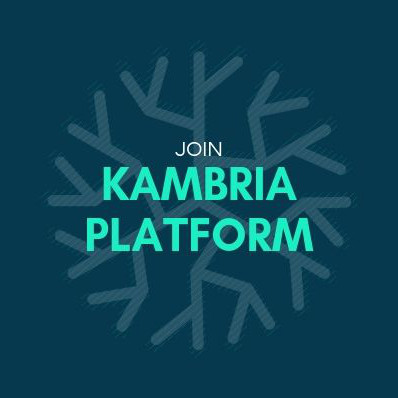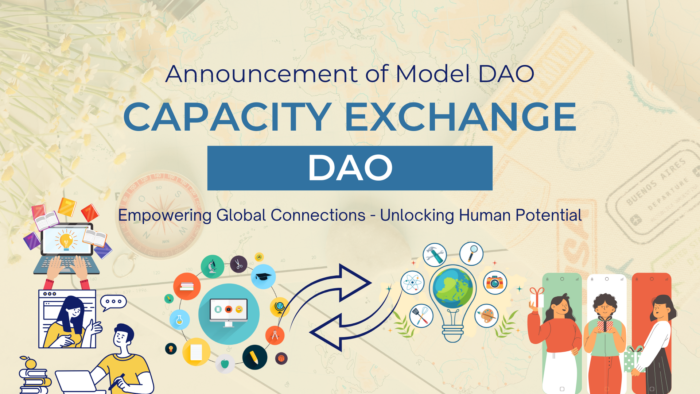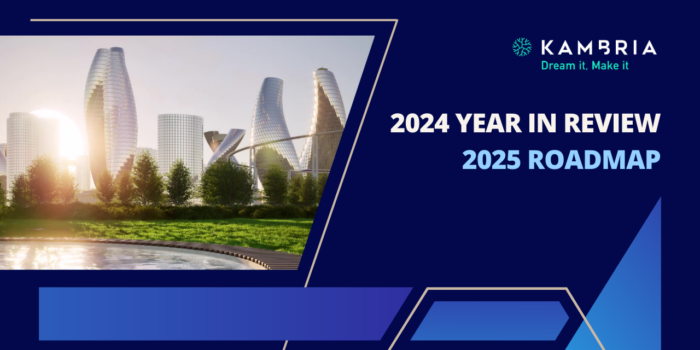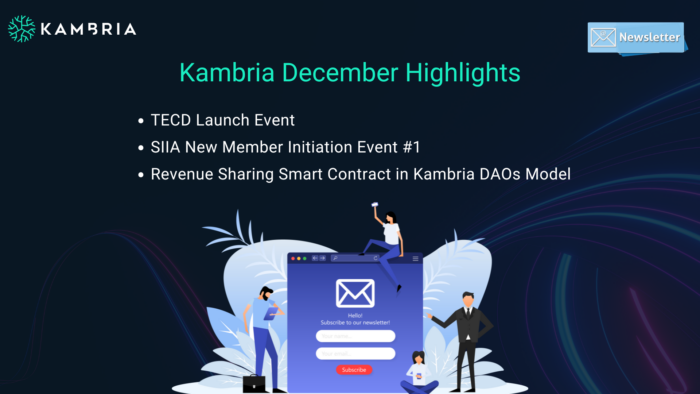KAMBRIA - In this article, we delve into the implementation of smart contracts to handle revenue sharing within Kambria DAOs, focusing on both hardware products and services.
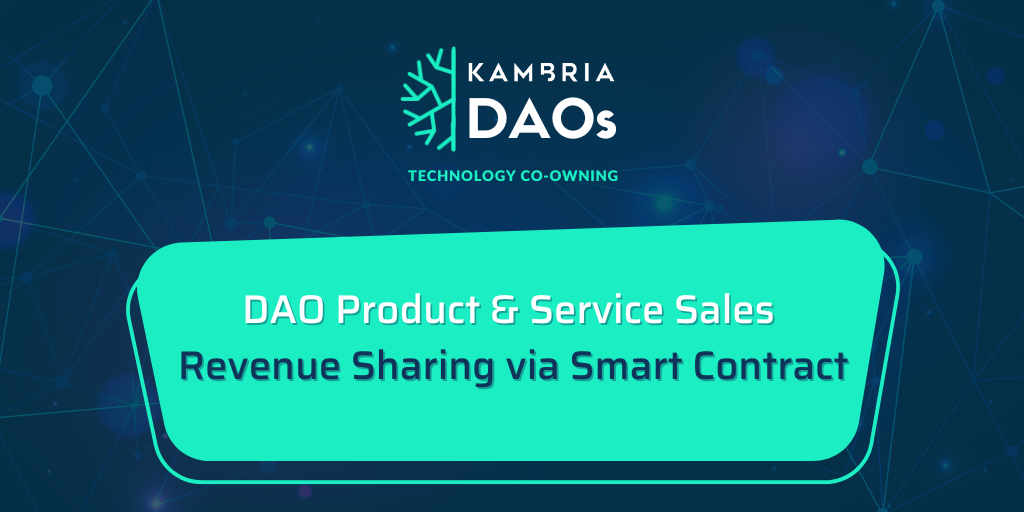
Overview
Smart contracts are revolutionizing the way decentralized autonomous organizations (DAOs) manage their revenue sharing processes. By leveraging blockchain technology, these contracts ensure transparency, security, and efficiency in distributing earnings generated from sales of DAO products and services.
In this article, we delve into the intricacies of smart contracts designed specifically for handling revenue sharing within Kambria DAOs, focusing on both hardware products and services.
Purpose and scope of smart contracts
There are 2 smart contracts within Kambria DAOs relating to revenue sharing:
Codebase revenue sharing smart contract
This contract manages revenue sharing from NFT License sales, ensuring that proceeds are distributed equitably among DAO members.
Sales revenue sharing smart contract
This contract facilitates revenue sharing from the sales of DAO products and services, categorizing them into two main categories:
- Services: This includes subscriptions to services tailored to meet specific needs. For instance, within the Tech-powered Elderly Care DAO, families can acquire subscriptions for seniors to connect, learn, and experience. Additionally, deployment and setup services are available, exemplified by the Home Garden Tech DAO, where users can purchase IoT kits accompanied by professional setup services.
- Hardware products: This category encompasses tangible items such as Pet Care robots and IoT kits, enhancing users' lives through innovative technology solutions.
Smart contract approach
In response to the diverse needs of various DAOs, our smart contract approach is tailored to meet their specific requirements comprehensively. This involves:
- Customized contract versions: We develop distinct iterations of smart contracts designed to cater to specific hardware or service categories within the DAO ecosystem. These contracts are meticulously crafted to align with the unique characteristics and operational dynamics of each category.
- Flexible revenue models: Revenue distribution percentages or fixed payment schemes are customized within each contract to ensure adaptability and fairness.
- Parameter customization: Beyond revenue distribution, a wide range of other parameters can be adjusted within the smart contracts. These may include contractual terms, discounts for KAT payments, and order completion period, among others.
Furthermore, these contracts are integrated into Kambria platform, providing a seamless interface for managing DAO products and services.
It's important to note that all numerical values discussed in this article represent parameters of the smart contract and are configurable during its creation. As DAOs undergo further development and evolution, these values may be subject to change to better suit the evolving needs and objectives of the DAO ecosystem.
Smart contract for services
Purchase user flow
Customers navigate through a user-friendly interface to select services tailored to their needs, categorized based on their location within the DAO hub network.
Patrons holding KAT tokens enjoy exclusive discounts. Additional accepted payment options include USDT and PAXG, with the main chain token to be added soon. These tokens also serve as the currencies for the DAO fund.
Processing order
Following purchase confirmation, Kambria promptly notifies the Channel Partner assigned to the relevant location to oversee the order processing. These partners are not only tasked with managing the logistical aspects but also providing essential onboarding and support services tailored to the customer's needs.
It's important to highlight that beyond the standard services offered by DAOs, partners have the flexibility to deliver value-added services, enriching the overall customer journey and enhancing their earnings through additional service offerings.
Processing revenue sharing
Upon completion of the order, revenue sharing is initiated. This involves distributing earnings among key stakeholders:
- DAO Members: Receive a fair share of 25% of the revenue.
- Channel Partner: Handling the order, in terms of sales and support, receives 8%.
Revenue sharing is conducted in USDT and KAT tokens, reflecting the DAO's fund ratio.
Shared revenue for each recipient is computed and updated on a monthly basis, based on completed orders.
Notes
For Service Partners involved in implementing the service:
- Rather than a percentage, payments are set at fixed amounts, structured in one of two schemes based on the DAO's service model:
- Standard amount for micro jobs: For example, in the Tech-powered Elderly Care DAO, SeniorBuddies receive $6 per connection session.
- Proposed Amount: Service Partners can submit proposals for approval and subsequent payment, with a service budget allocated within 25-40% of the DAO fund.
- Payments are executed upon job completion, not upon order completion, considering that orders may entail subscriptions involving multiple jobs from various partners.
- Payments for Service Partners are handled in separate smart contracts.
Smart contract for hardware products
Purchase user flow
Customers are guided through a user-friendly interface to browse and select products tailored to their preferences, often based on their location within the DAO hub network.
Patrons holding KAT tokens enjoy exclusive discounts. Additional accepted payment options include USDT and PAXG, with the main chain token to be added soon. These tokens also serve as the currencies for the DAO fund.
Processing order
Upon confirmation of purchase, Kambria promptly notifies both the Production Partner and Channel Partner assigned to the corresponding location for seamless order fulfillment.
The Production Partner takes charge of efficient product delivery, ensuring prompt and secure handling from dispatch to receipt.
Simultaneously, the Channel Partner steps in to offer comprehensive warranty and support services, addressing any queries or concerns with utmost professionalism and care.
It's important to highlight that in addition to the standard services offered by DAOs, Channel Partners have the flexibility to provide value-added services, enhancing the overall customer experience and increasing their earnings through additional service offerings.
Processing revenue sharing
Upon completion of the order, revenue sharing is initiated. This entails the distribution of earnings among key stakeholders: DAO members receive a fair share of 25%, while the Channel Partner and Production Partner involved in the order are allocated 8% and 25-40%, respectively.
To ensure transparency and efficiency, revenue sharing is conducted in USDT and KAT tokens, reflecting the DAO's fund ratio.
Similar to the NFT revenue sharing mechanism, shared revenue for each recipient is computed and updated on a monthly basis, based on completed orders.
Notes
To maintain the integrity of operations, strict adherence to on-chain processing is mandated. This stringent measure aims to prevent any unauthorized commercialization by partners. Should Channel Partners or Production Partners engage in off-chain processing or any form of unauthorized commercial activities, they will be deemed in violation of DAO rules. Consequently, their partner rights within the DAO will be revoked as per the established protocols.
Furthermore, marketing initiatives are allocated a separate budget equivalent to 10% of the DAO fund. Community Partners play a vital role in this aspect by proposing various campaigns for consideration. Once approved, these campaigns are executed, and Community Partners receive subsequent payments, fostering a collaborative and dynamic ecosystem within the DAO.
Conclusion
Smart contracts play a pivotal role in streamlining revenue sharing within DAOs, fostering transparency and trust among stakeholders. By implementing these contracts for both hardware products and services, Kambria DAOs can effectively manage sales revenue and ensure equitable distribution among contributors.
